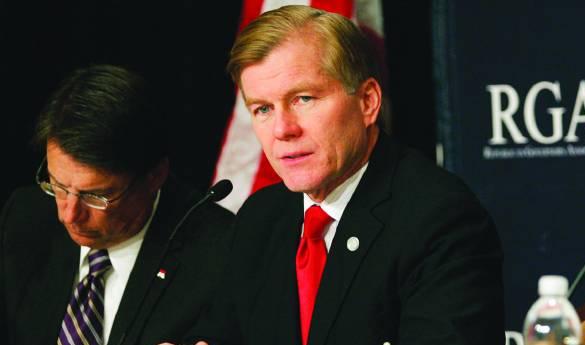Mason pushing for exemption from health care coverage mandate
George Mason University officials are pushing for exemption from a new federal law requiring health insurance coverage for part-time workers.
Under the Affordable Care Act, part-time state employees who are working more than 29 hours a week must be covered by health insurance. In reaction to the provision, Virginia Governor Bob McDonnell has limited the number of hours that part-time employees are allowed to work for state entities. According to the Richmond Times-Dispatch, providing basic health coverage to part-time employees and their families could cost anywhere from $61 to $110 million.
The new requirement poses a particular set of problems for both students and faculty at public universities across Virginia, including Mason. For example, students would have to pick between two jobs that would put them over the state-mandated limit, such as serving as a Resident Advisor and a Patriot Leader. Likewise, adjunct faculty may not be able to work more than 1,500 hours a year, which works out to about 30 hours a week.
“I’m nervous because I don’t know if that’s going to put me over 1,500 [hours],” said Raquel Friedmann, a rising sophomore who has been accepted as a resident advisor for the fall semester, a Patriot Leader, and a peer advisor. “All of these [jobs] you really have to work hard to get.”
Many state employers are having difficulty with even counting the number of hours their staff works.
For instance, both resident advisors and faculty are not paid on an hourly basis. Faculty members are paid by the number of credit hours taught per semester, rather than the total number of hours they work per week.
“There is a lot of issues with counting students,” said Linda Harber, associate vice president of Human Resources and Payroll, referring to the difficulty of quantifying the number of hours that students work.
According to Harber, Mason is part of a large group of higher education institutions that are pushing for adjunct professors and students to be exempt from the federal regulations.
“Students who work on campus do not share the same status as typical employees,” read a letter from Terry Hartle, senior vice president of the American Council on Education to the Internal Revenue Service, which is responsible for determining who will be affected by the regulations. “There is little risk such students will lack meaningful health coverage.”
The letter points out that many students will already be eligible for health insurance under a provision of the ACA that allows them to remain on their parents health insurance plans until they are 26 years old. Likewise, higher education officials are concerned that providing additional health care coverage could lead to higher costs for students.
“Higher education officials are particularly concerned about potential increased costs for health coverage,” Hartle wrote in the March 18 letter. “Students face many unintended consequences from these increased costs, such as the likelihood of increased tuition and reduced educational services.”
As of now, the IRS has determined that faculty working part-time for separate state entities will not have their hours added up between both jobs. For example, the number of hours an adjunct professor works for Mason will not be added on to however many hours he or she works for another state entity, such as Northern Virginia Community College.
According to Harber, students and faculty will be unaffected by the regulations until they go into effect in January 2014. For now, the university will continue to pressure the IRS for a ruling that will exempt students and adjunct faculty from the requirements.
Correction: The original story incorrectly referred to Linda Harber, associate vice president of Human Resources and Payroll, as Lisa Harber.

